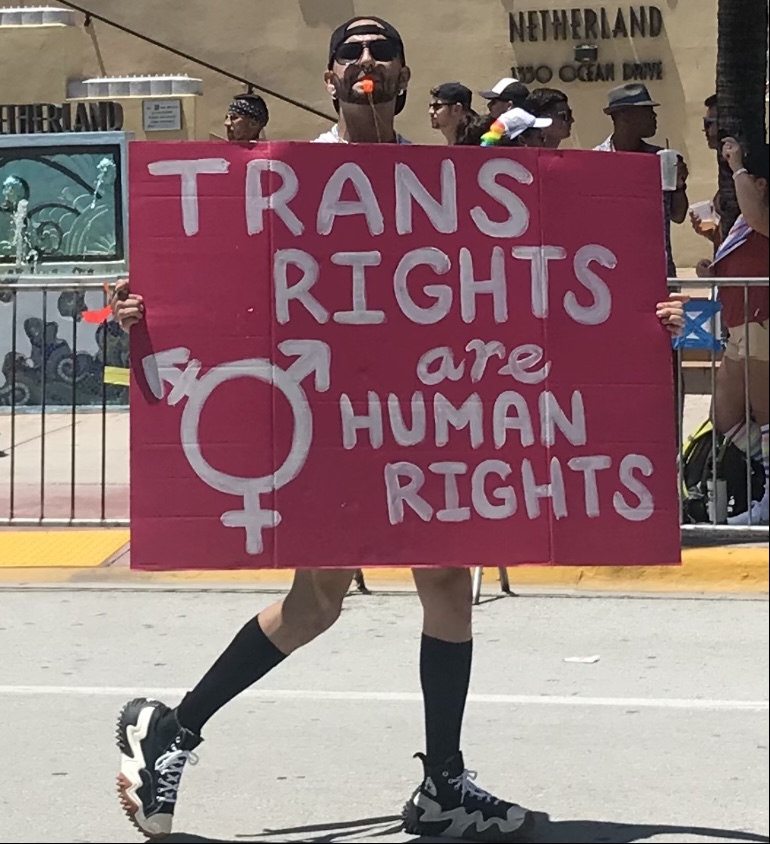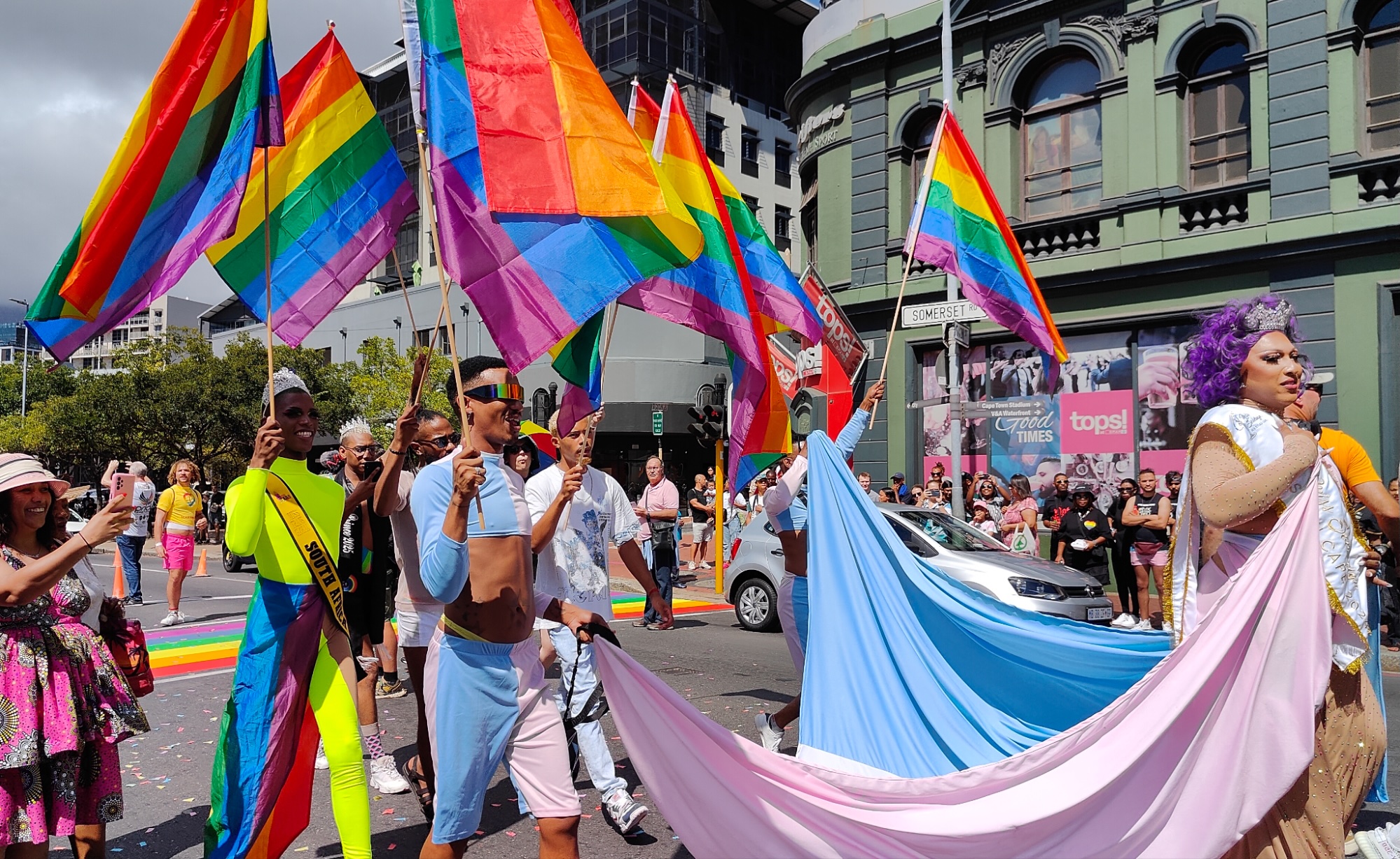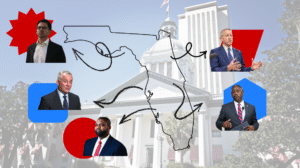While rainbow flags waved down city streets during June’s Pride Month, the Trump administration and the Supreme Court threatened to upend previously protected rights for the LGBTQ+ community. The recent vote by the Southern Baptist Convention to support overturning legalized gay marriage, the Supreme Court ban on gender affirming care for minors in Tennessee and the end of the dedicated 988 LGBTQ+ help hotline highlight the decrease in legal protections and societal acceptance afforded to the LGBTQ+ community.
Supreme Court and Gender Affirming Care
On June 18, the Supreme Court upheld Tennessee’s ban on gender affirming care for transgender minors. The Tennessee Sixth Circuit’s 6-3 decision in U.S. v. Skrmetti restricts access to hormone treatment and puberty blockers for minors. In March 2023, Tennessee enacted the Prohibition on Medical Procedures Performed on Minors Related to Sexual Identity, or SB1. Twenty-six states have laws similar to Tennessee’s, including Florida.
Gender affirming care covers a range of medical and mental health services that support a person’s gender identity. These services are used to assist someone with gender dysphoria, the feeling that one’s gender at birth and gender identity do not match. Testosterone used for transgender men causes menstruation to stop, facial hair to grow and voices to deepen. Estrogen for transgender women slows body hair growth and increases breast tissue growth.
A recent health report from Harvard University revealed that less than 1 in 1,000 U.S. adolescents receive gender-affirming medications. Another study published in the American Journal of Surgery found that the level of regret reported by transgender individuals following gender-affirming surgery is less than 1%, a significantly lower number than the “regret associated with having children, getting a tattoo or undergoing plastic surgery.”
However, about two-thirds of U.S. adults polled agree with President Donald Trump that whether a person is a man or woman is determined by their biological characteristics at birth, according to a survey conducted by The Associated Press-NORC Center for Public Affairs Research.
Chief Justice John Roberts wrote for a conservative majority that “any person who knowingly violates SB1” risks facing a fine of $25,000 “per violation.” Very similar to previous state abortion bans that have strict penalties or jail times for aiding and abetting, the Supreme Court ruled that there would be penalties imposed for providing minors access to hormones or puberty blockers.
Roberts wrote that SB1 does not violate the Equal Protections Clause in the 14th Amendment of the U.S. Constitution, which requires equal protection under the law.
“The court next declined to recognize transgender individuals as a suspect class, finding that transgender individuals are neither politically powerless nor a discrete group defined by obvious, immutable, or distinguishing characteristics,” Robert stated.
In her dissent, Justice Sonia Sotomayer wrote, “By retreating from meaningful judicial review exactly where it matters most, the court abandons transgender children and their families to political whims.”
“As much as they refuse to admit it, they are not making these changes to ‘protect children,’” New College rising thesis student Kevin Nowling said about the ruling. “If they truly cared about kids they would be tightening down on gun laws.”
Lawyers believe that the recent ruling only applies to Tennessee.

Trump Administration and LGBTQ+ Hotlines
In a new budget plan, the Trump Administration has mandated that the 988 Suicide and Crisis Lifeline stop offering specialized support to LGBTQ+ callers. The Trevor Project, the leading LGBTQ+ crisis support service through the 988 hotline, was issued a stop work order on June 18, effective July 17.
“As of June 2025, more than $33 million in funds have been spent to support the subnetworks, fully expanding the monies allocated for 988 Lifeline LGB+ subnetwork services,” the Substance Abuse and Mental Health Services Administration (SAMHSA) said in a statement.
SAMHSA also internally omitted the T for “transgender” and Q for “queer” or “questioning” from the LGBTQ+ acronym on June 18.
“Everyone who contacts the 988 Lifeline will continue to receive access to skilled, caring, culturally competent crisis counselors who can help with suicidal, substance misuse or mental health crises, or any other kind of emotional distress,” the SAMSHA statement continued. “Anyone who calls the Lifeline will continue to receive compassion and help.”
According to a spokesperson for the White House Office of Management and Budget, the specialized hotline is “a chat service where children are encouraged to embrace radical gender ideology by ‘counselors’ without consent or knowledge of their parents.”
The end of this specialized support hotline has led to other crisis resources dropping specialized support for LGBTQ+, migrant or other marginalized groups in fear of similar budget cuts to their organizations. For instance, The Rape, Abuse and Incest National Network (RAINN), the nation’s largest anti-sexual violence organization, has barred its employees from referring callers to specialized hotlines.
“If they truly cared about kids they wouldn’t be eliminating a service that’s main purpose is to prevent them from ending their lives,” Nowling said. “They don’t care about kids, they only care about having control.”
“Suicide prevention is about people, not politics,” Trevor Project CEO Jaymes Blacktold the BBC. “The administration’s decision to remove a bipartisan, evidence-based service that has effectively supported a high-risk group of young people through their darkest moments is incomprehensible.”
Southern Baptists and Gay Marriage
On June 10, The Southern Baptist Convention in Dallas voted to signal its approval for the overturn of Obergefell v. Hodges, the 2015 Supreme Court ruling that legalized gay marriage in the United States. The Southern Baptist Convention, not a church itself but a network, is an autonomous group of Baptist churches. Boasting 12 million members, Southern Baptist is the largest Protestant denomination in the nation. Thousands gathered to discuss their new resolution. Even though the denomination has opposed gay marriage for many years, this was the first time its members have voted in support of ending it legally.
The resolution calls for any laws or court rulings that “defy God’s design for marriage and family” be overturned. Since Roe v. Wade, which established a woman’s constitutional right to an abortion based on the right to privacy, was overturned in 2022, some conservative Christian activists and organizations including the Southern Baptist Convention have attempted to further their Supreme Court success by pushing for the overturn of Obergefell v. Hodges.
According to the BBC, “The Southern Baptists’ resolution does not use the word “ban” directly. Instead, it calls for the ‘overturning of laws and court rulings, including Obergefell v. Hodges, that defy God’s design for marriage and family’ The resolution also calls for laws that affirm marriage between one man and one woman.”
Further, the resolution asks that legislators “pass laws that reflect the truth of creation and natural law—about marriage, sex, human life and family.” It also urges Christians to view marriage and childrearing “as blessings rather than burdens.” Additionally, the resolution calls for a nationwide ban on pornography and sports betting.
Even though the Southern Baptist resolution is non-binding, it stems from a large Trump-supporting base and is meant to send a message to the current White House and Supreme Court. The symbolic vote can be seen to indicate the direction of America’s current political climate.
It is easy for one to get lost in despair. Here is a list of sources one can access for online and phone support for LGBTQ+ youth.




